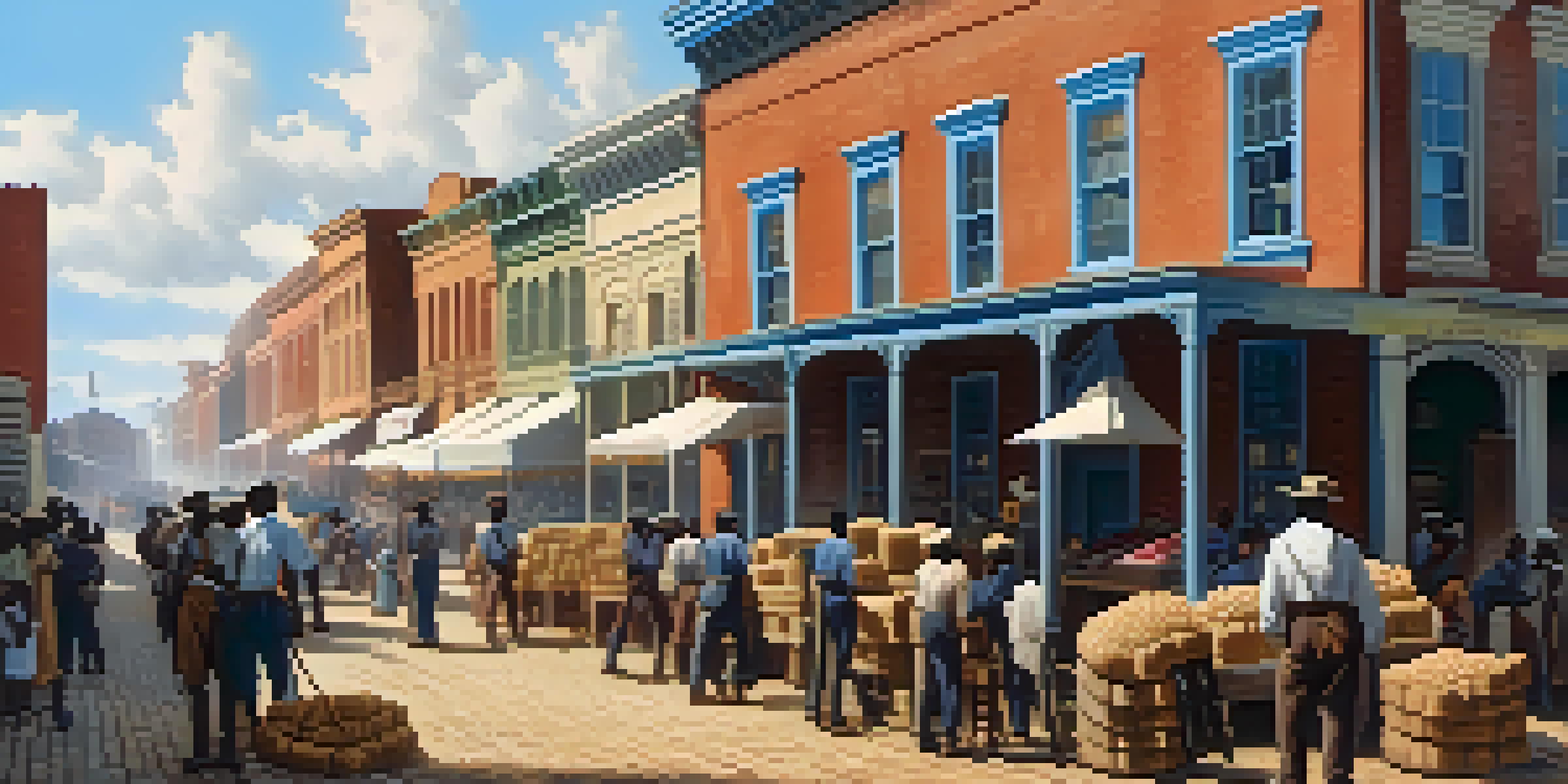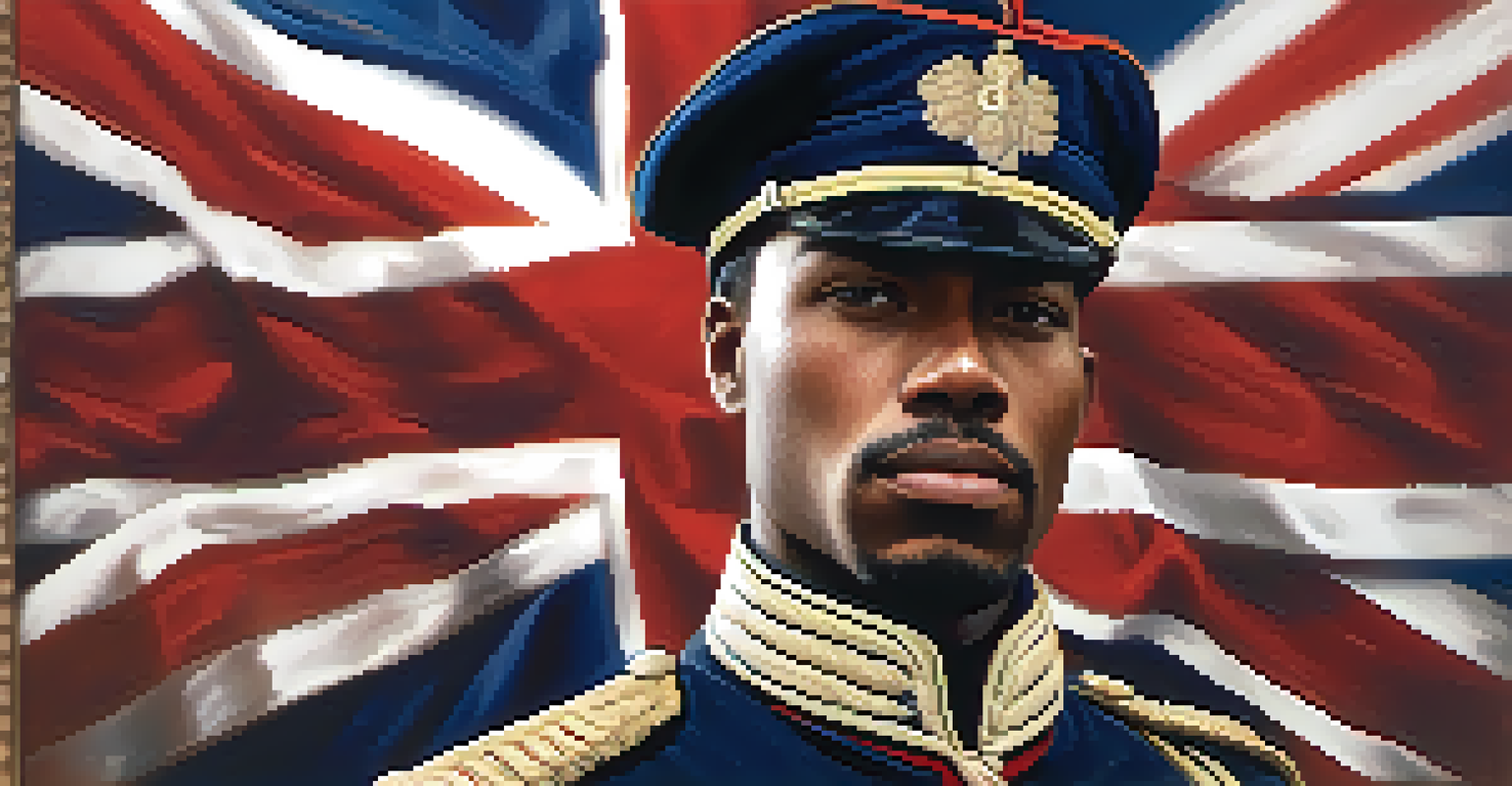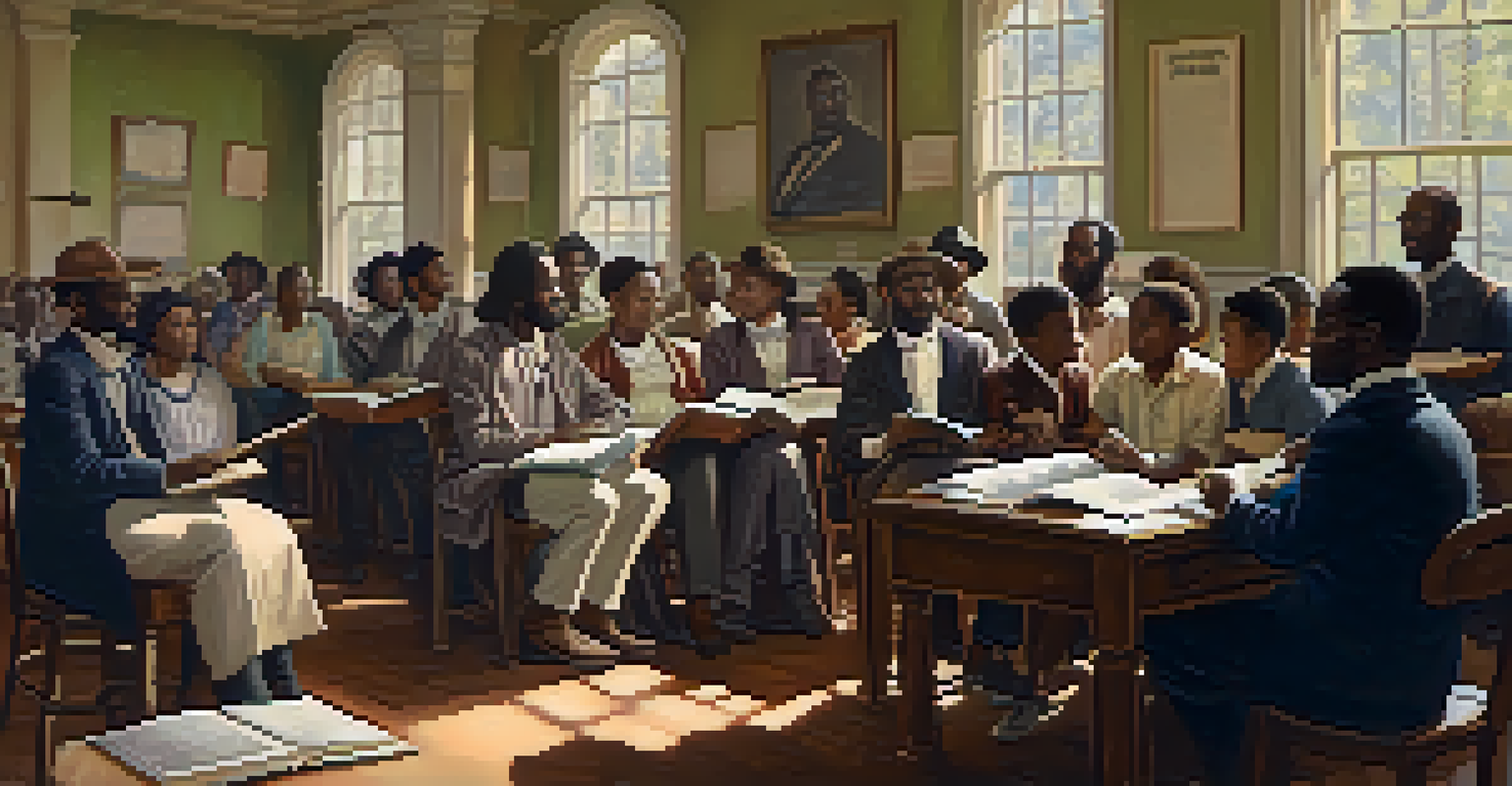The Role of African Americans in Savannah During the War

Historical Context of Savannah Before the War
Before the Civil War, Savannah was a bustling port city, deeply intertwined with the cotton economy. This economic boom was largely fueled by enslaved African Americans, who were the backbone of plantation labor in the surrounding areas. Their forced labor not only enriched plantation owners but also contributed significantly to Savannah's growth as a trade center.
Freedom is never given; it is won.
Savannah's strategic location made it a key target during the war, as control of the city could influence supply routes and military strategies. The population of African Americans in Savannah was significant, with many enslaved individuals living in the city while others worked on nearby plantations. This demographic reality played a crucial role in shaping the city's social and political landscape leading up to the conflict.
As tensions rose and the war began, the dynamics within Savannah shifted, with the African American community poised to play a pivotal role in the events that followed. Their contributions and sacrifices would soon become integral to both the Union and Confederate efforts, marking a profound chapter in Savannah's history.
Enslaved Laborers: The Backbone of the Confederacy
During the Civil War, enslaved African Americans were essential to the Confederate war effort. They worked tirelessly in agriculture, producing the food and cotton that sustained the South's economy. Their labor allowed Confederate soldiers to focus on the battlefield, highlighting the critical role that enslaved individuals played in supporting the Confederacy.

As the war progressed, many enslaved people took on additional responsibilities, such as building fortifications and serving as laborers for the military. This not only demonstrated their resilience but also their strategic importance to the Southern cause. Even as they faced unimaginable hardship, their contributions were vital for the Confederacy's survival.
Savannah's Role in the Civil War
Savannah's strategic location and reliance on enslaved labor made it a crucial target during the Civil War.
However, the harsh realities of enslavement did not go unnoticed. Many enslaved individuals began to resist their circumstances, seeking freedom through various means, including escape or aiding Union forces. This growing defiance would eventually shift the course of the war and change the narrative surrounding African Americans in Savannah.
The Role of Free African Americans in Savannah
In addition to enslaved laborers, free African Americans in Savannah also played a significant role during the Civil War. Many were skilled artisans, business owners, and community leaders who contributed to the city's economy and culture. Their unique position allowed them to navigate complex social dynamics while advocating for their rights and those of their enslaved counterparts.
The only way to deal with the future is to function in the now.
As the war broke out, free African Americans took on important roles in supporting the Union cause. Some enlisted in the Union Army, while others provided assistance to the soldiers by offering supplies or information. Their involvement in the war effort showcased their commitment to the fight for freedom and equality, even amidst the oppressive conditions of the time.
The bravery of free African Americans in Savannah served as an inspiration for many enslaved individuals. Their actions underscored the notion that freedom was not just a distant dream but a tangible goal worth fighting for. This determination would lay the groundwork for future movements advocating for civil rights and equality.
African American Soldiers and the Union Army
As the war progressed, the Union Army began to actively recruit African American soldiers, recognizing their potential as vital assets in the fight against the Confederacy. Many African Americans from Savannah answered the call, enlisting in regiments such as the 54th Massachusetts Infantry. Their bravery and dedication were evident on the battlefield, where they fought valiantly for their freedom and the freedom of others.
These soldiers faced significant challenges, including discrimination and lower pay compared to their white counterparts. Despite these obstacles, they remained committed to the cause, demonstrating courage and resilience that would earn them respect and recognition. Their sacrifices opened the door for future African American enlistment and highlighted the critical role they played in the Union's victory.
Empowerment Through Emancipation
The Emancipation Proclamation transformed Savannah's African American community, enabling them to seek freedom and pursue education.
The legacy of African American soldiers in Savannah and beyond is profound. Their contributions not only helped to secure a Union victory but also laid the groundwork for the eventual abolition of slavery. Their stories of valor continue to inspire generations, reminding us of the strength and determination of those who fought for justice.
The Impact of Emancipation on Savannah's African Americans
The Emancipation Proclamation of 1863 marked a turning point for African Americans in Savannah. With the promise of freedom, many enslaved individuals seized the opportunity to escape and seek refuge with Union troops. This influx of newly freed individuals transformed the social fabric of the city, as they sought to rebuild their lives and establish new communities.
Emancipation also empowered African Americans to pursue education, employment, and political participation. Many sought to learn to read and write, understanding that education was key to achieving true freedom. The establishment of schools and churches became focal points for community organization and empowerment, fostering a sense of unity among the newly freed population.
However, the transition to freedom was not without challenges. Many African Americans faced hostility and resistance from those who opposed their newfound rights. Despite these obstacles, the resilience of Savannah's African American community shone through as they worked tirelessly to create a better future for themselves and their descendants.
Post-War Reconstruction and African American Empowerment
Following the Civil War, Savannah entered a new era of Reconstruction, offering both challenges and opportunities for African Americans. They began to assert their rights, participating in the political process and advocating for social change. Many were elected to local offices, marking significant progress in the fight for equality.
During this time, African Americans in Savannah established organizations and institutions that focused on education, economic empowerment, and civil rights. These efforts were crucial in fostering a sense of community and identity, allowing them to navigate the complexities of post-war society. The establishment of schools and businesses laid the groundwork for future generations to thrive.
Legacy of African American Resilience
The contributions and sacrifices of African Americans during the Civil War and Reconstruction have significantly shaped Savannah's history.
Despite the progress made during Reconstruction, resistance and backlash were prevalent. The rise of groups opposed to African American rights posed significant threats to their advancement. Nevertheless, the resolve and determination of Savannah's African Americans during this period would shape the ongoing struggle for civil rights in the years to come.
Legacy of African Americans in Savannah's Civil War History
The contributions of African Americans during the Civil War and Reconstruction era have left an indelible mark on Savannah's history. Their resilience, bravery, and determination to fight for freedom and equality continue to inspire today. By examining their stories, we gain a deeper understanding of the complex narratives that shaped the South.
The legacy of African Americans in Savannah serves as a reminder of the ongoing struggle for civil rights and social justice. Their experiences during the war and beyond illustrate the importance of recognizing the contributions of all individuals in shaping our collective history. This acknowledgment fosters a more inclusive understanding of the past.

As we reflect on the role of African Americans in Savannah during the Civil War, we must honor their sacrifices and celebrate their achievements. By doing so, we not only preserve their stories but also ensure that future generations learn from the lessons of history, continuing the fight for equality and justice.